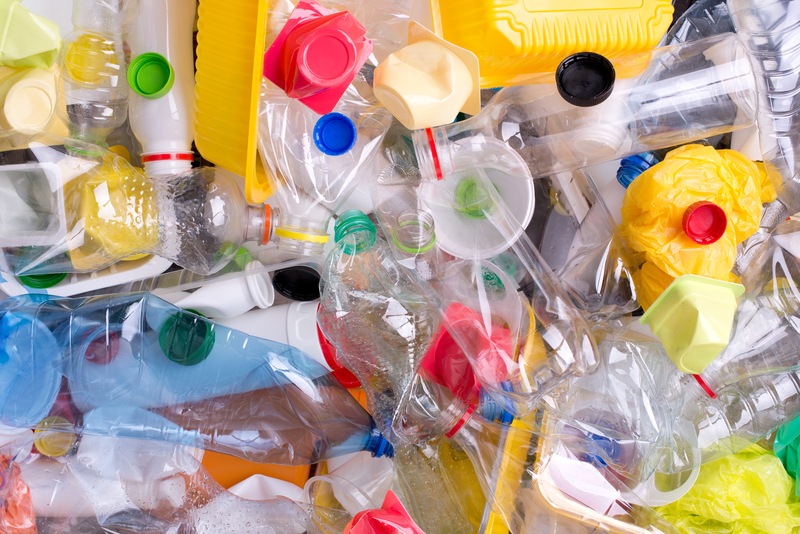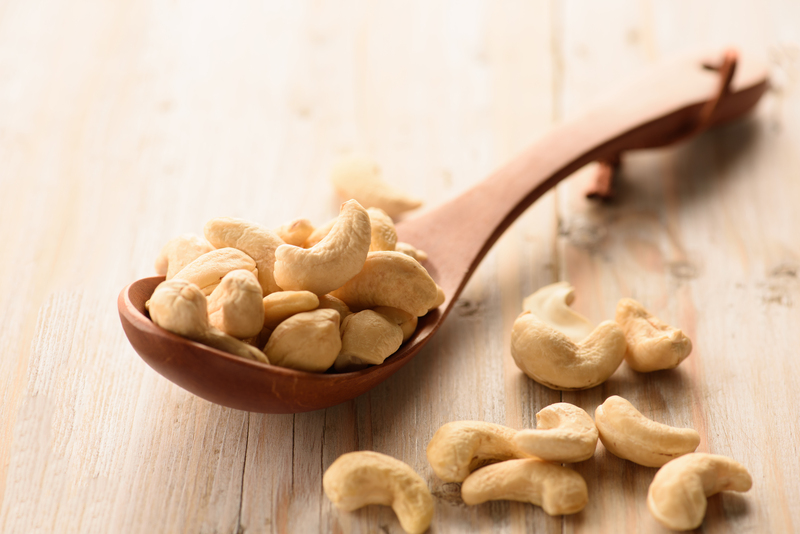How to Find Scrap Metal Recyclers for Pots and Pans Near You
Do you have old pots and pans cluttering your kitchen? Instead of tossing them in the trash, you can help the environment and even earn a bit of extra cash by recycling your cookware. But how do you find scrap metal recyclers for pots and pans near you? In this comprehensive guide, we'll walk you through the entire process--what items are recyclable, where to bring them, how to prepare them, and the best ways to locate reputable recyclers in your area.
Why Should You Recycle Pots and Pans?
Environmental Benefits
- Reduces landfill waste: Millions of cookware items end up in landfills each year.
- Saves energy: Recycling metals consumes less energy compared to mining and processing new materials.
- Preserves natural resources: Reusing valuable metals reduces the need for virgin ore.
Financial Incentives
Many scrap metal recyclers pay you for your unwanted pots and pans. Prices vary, but stainless steel, copper, and cast iron cookware can fetch a reasonable price at most local scrap yards.

What Types of Pots and Pans Can You Recycle?
Before searching for "scrap metal recyclers for cookware near me," it's essential to know which items are recyclable.
- Stainless steel pans
- Copper-bottom cookware
- Aluminum pots
- Cast iron skillets and dutch ovens
- Non-stick pans (if stripped of coating--check with recycler)
Note: Cookware with plastic handles, lids with glass, or non-metal parts may need to be disassembled. Always ask your local recycler about their specific requirements.
How to Prepare Your Cookware for Recycling
-
Remove non-metal parts.
Take off any plastic, silicone, or wooden handles. Glass lids should be separated from metal pots and pans. -
Clean your cookware.
While a deep clean is unnecessary, make sure there's no food residue or excessive grease. Most recyclers prefer relatively clean metals as it streamlines the recycling process. -
Sort your metals.
Group items by metal type--aluminum, stainless steel, copper, and cast iron--since they are processed differently at recycling centers.
Where to Find Scrap Metal Recyclers for Pots and Pans in Your Area
Now, let's dive into the main question: How do you locate reputable scrap metal recyclers for pots and pans near you? Below are some effective methods to track down the right facility:
1. Online Scrap Metal Directories
Use specialized websites and online tools to identify local recyclers. Some popular options include:
-
Earth911:
Visit Earth911 Recycling Locator and enter your zip code along with 'metals' or 'cookware' to find nearby drop-off points. -
Recyclesearch.com:
A robust search tool for all recyclable materials, including metals used in pots and pans. -
ScrapMonster and RecyclerFinder:
These platforms allow you to search "scrap metal recycling near me" and compare facility ratings.
2. Google Search and Google Maps
A simple Google search for terms like "scrap metal recyclers for cookware near me" or "pot and pan recycling locations" will bring up local businesses. Be sure to check Google Maps for customer reviews, ratings, hours of operation, and directions.
3. Municipal Waste Websites and Local Government Resources
City or county websites often have recycling directories or partner with local scrap yards. Browse your municipality's waste management section for metal recycling drop-off points.
4. Local Junk Yards and Scrap Yards
Many junk yards and scrap yards don't just take car parts--they also accept household scrap metal. Call ahead to confirm they take pots and pans and to check if you need to separate the materials.
5. Recycling Events and Community Programs
Look out for scheduled city cleanup days, environmental fairs, or household hazardous waste collection events--they often accept old cookware for recycling.
Tips for Selecting the Best Scrap Metal Recycler
-
Check for certifications:
Choose a recycler licensed by state environmental authorities or recognized organizations like the Institute of Scrap Recycling Industries (ISRI). -
Read reviews:
Customer testimonials on Google, Yelp, or social media can provide insights into service quality, payout rates, and recycling processes. -
Contact multiple facilities:
Some recyclers pay better rates or offer more convenient options than others. -
Ask about pickup options:
Some companies offer home pickup services for bulk items, saving you a trip.
What Metals Are in Your Pots and Pans?
Understanding the types of metal in your cookware is essential because it affects how--and how much--you'll get paid.
Common Metal Types in Cookware:
- Stainless Steel: Highly recyclable, most stainless steel pans have a solid resale value at scrap yards.
- Copper: Value is high, but rare in modern cookware--usually present in high-end or vintage pots and pans, especially in the base layer.
- Aluminum: Lightweight, often used in affordable pots; less valuable per pound but still widely accepted.
- Cast Iron: Extremely durable, easily recycled; a heavy item, making transportation worthwhile if you have several pieces.
Bonus Tip: Use a magnet to test your items. Stainless steel is often magnetic, while aluminum and copper are not. Knowing your metals can help sort and price your items accurately.
FAQ: Scrap Metal Recycling for Pots and Pans
Can I recycle non-stick pans?
It depends on your local recycler. Many will accept non-stick pans only if the non-stick coating (like Teflon) is removed. Check with your chosen scrap yard before bringing in these items.
Will I get paid to recycle my pots and pans?
Yes! Scrap metal recyclers usually pay for common kitchen metals. Payment is typically by weight. Stainless steel, copper, and aluminum cookware often have the best rates.
Do recyclers accept cookware with plastic or wooden handles?
Most require you to separate the metal from any non-metal components. Remove handles before dropping off your items.
What if my pots and pans are rusty or damaged?
Scrap metal recyclers accept items in any condition, provided the metal is clean and separated. Heavily rusted items should be cleaned if possible.
Are there any alternatives to recycling?
Yes. If your pots and pans are still usable, consider donating to local charities, shelters, or thrift stores. Some art studios or DIY enthusiasts use old metal cookware for creative projects.
Benefits of Working with Local Cookware Recyclers
Looking for pot and pan scrap metal recyclers near me means you're supporting businesses in your community and reducing your carbon footprint. Local recycling cuts down the distance your metal travels before being reused, lowering transportation emissions. You can also get personalized service and immediate feedback about your items.
Additional Resources: Where Else Can You Recycle Cookware?
- Home improvement stores: Some chains like Lowe's or Home Depot sponsor occasional recycling drives for household items.
- Donation centers: Goodwill and Salvation Army may accept functional cookware for resale (call ahead to confirm condition requirements).
- Metal brokers: Companies that specialize in buying scrap metal in bulk may be interested if you have a larger quantity to sell.
- Community recycling events: Watch local calendars for events where household metal goods are welcomed.

How to Get the Most for Your Scrap Pots and Pans
- Sort and clean your items: Separated and clean metals command higher prices.
- Check prices before going: Metal prices fluctuate--visit scrap yard websites or call for current rates.
- Bring valid ID: Some recycling centers require identification for scrap metal sales.
- Ask about loyalty programs: Regular recyclers may benefit from special rates or incentives.
Conclusion: Start Recycling Your Pots and Pans Today!
Recycling old pots and pans is one of the easiest ways to keep your kitchen eco-friendly while earning a little extra. By understanding where to find scrap metal recyclers for pots and pans near you, how to prepare your items, and which types of cookware can be recycled, you're helping both your wallet and the planet.
Begin by checking online directories, using your city's recycling resources, and contacting local scrap yards. Always sort and clean your items for the best returns, and consider alternatives such as donation if your cookware is still in good condition. With this guide, you have everything you need to responsibly recycle your metal kitchenware!
- Save space in your kitchen
- Reduce landfill waste
- Help the environment
- Put a little extra cash in your pocket!
Take action today: search for scrap metal recyclers for pots and pans near you and turn old cookware into new opportunities!
